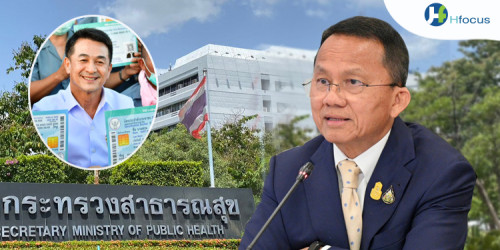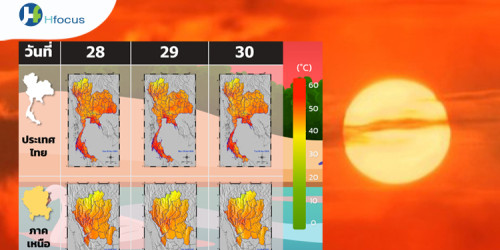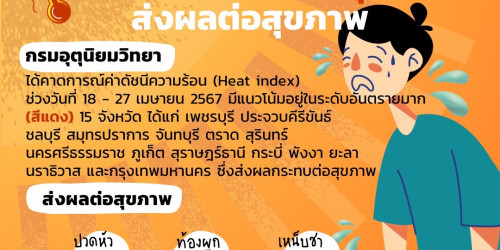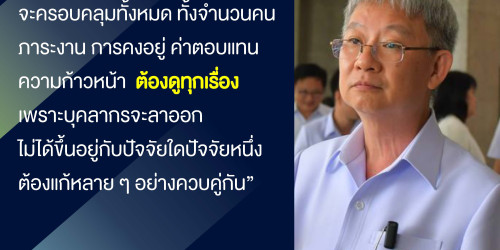Medical insurance is a wise form of insurance protection, for yourself and those dependent on you. For a fraction of the price you would otherwise have to pay, you get peace of mind and protection against a serious downside. Have you ever contemplated how you would survive financially if you were to have medical problems?
Some expats make a conscious decision to self-insure and have sensibly assessed their own circumstances, deciding that they will be in a position to cover any expenses that may be necessitated in the future. While this may be a carefully thought out plan,they are still taking a huge financial risk that they will not encounter a catastrophe.
Starting at the lower end of the risk scale,many feel that they don't require medical insurance in a country like Thailand. After all, when you visit the doctor for minor ailments such as the flu, the bill is usually affordable and an expensive insurance premium certainly wouldn't be warranted for this type of claim. Besides, most medical insurance policies have a deductible, or excess, which is the base amount you have to pay before the insurer pays any additional cost.
So, for example, if you have a US$100 (3,100 baht) excess, and your doctor's bills add up to $180 over a few visits for the same claim, you would be able to claim $80. Most policies have a choice of excess so you can opt to pay higher excess amounts and the premium will be reduced accordingly.
So, what would happen if you encountered a slightly more serious condition,maybe a burst appendix? An internationalstandard operation for this condition is probably more expensive than you think.Costs will vary, but expect to pay around 350,000 baht in Thailand, or more than $11,000, which is an eye-watering bill. If you had insurance with an excess of, say,$2,500, to reduce your premium, you would be covered for $8,500, which would be a relief for your bank balance.
Taking things a step further, what would happen if you contracted cancer which required an operation and then extensive follow-up treatment? We could now easily be talking amounts exceeding $100,000 which would be a serious situation for most expats. You may need to totally re-plan your financial life.
Going to the ultimate level, suppose you needed a heart, kidney or liver transplant?Now, without insurance you are going to be in an impossible situation, with bills that could approach $1 million.
Now that we've looked at some escalating examples, let's step back from heart attacks and similar catastrophes and turn to a reallife situation I encountered with a client last year.
He played golf and seemed to aggravate a previous back injury. Suddenly two days later he was totally immobilised with excruciating pain. After a period of not being able to move at all for two days, his family finally got him to a hospital. On examination he was told that he had a serious problem with a trapped nerve. Parts of his spine had seriously degenerated and only surgery would fix this. He was very worried and opted for the surgery which would be expensive but he thought he would be able to juggle things and just about afford it.
During the pre-surgical tests it transpired that he had an enlarged heart and could not undergo a general anaesthetic. The solution was to have heart surgery to stabilise the heart with external assistance. Then the spine surgery could go ahead and then finally the heart support could be removed.
The estimated cost of all this was around 2.6 million baht for the spine surgery and a further three million baht for the heart support procedures. With hospital support,room and other services and then followup visits, the bill would be in excess of 6.5 million baht or around $215,000.
The saddest part of all was that this expat had no medical insurance. As he was unable to afford the surgical procedures he was facing the rest of his life in miserable pain and heavily restricted movement. He may even be bed-ridden for the remainder of his life.
To pay for such medical care he would need to sell his home, liquidate all his assets and then borrow more money. This would leave him in a situation where he had no reserves to support himself, his wife and a debt. Already retired, he had no chance of repaying the debt let alone accumulating the assets again.
This type of situation happens to expats every day. How would you feel if it were you? I hear some say that it will never happen to them. Well, that is a chance you take and the risks are very real. Being healthy today does not mean you will continue to be healthy tomorrow.
Some British expats say that they will simply get on a plane and go back to the UK, where the National Health System (NHS)will take care of them. They are clearly unaware that once you have lived abroad for more than a year you are no longer entitled to NHS care if you return to the UK. So, my client could possibly get on a flight back to the UK. But after all the pain and suffering to get there he would only be faced with the same dilemma of having to pay for any treatment.
In many circumstances it would not be possible to return to your home country. If you had a heart attack or even a burst appendix you would be in mortal danger if you did not secure medical treatment very quickly indeed; there would be no time or opportunity to travel.
For other conditions it may be possible to travel back home and maybe you would "get away with it" so that you get free treatment. For those who prefer to try and "get away with it", if you manage to do so you will be one of the lucky ones. I am aware of a number of specific cases where expats have been turned away from British medical centres because they are no longer entitled to free care.
For all the British expats who have paid taxes it seems rather sad. This is exacerbated when we see certain foreigners who seem to enter the UK for the first time and "get away with it" in terms of all the free facilities they enjoy.
If you do not have any medical insurance in place, I urge you to investigate this and look at the hard facts before you decide to ignore the situation.
"Going to the ultimate level, suppose you needed a heart,kidney or liver transplant? Now,without insurance you are going to be in an impossible situation, with bills that could approach $1 million."
Andrew Wood has been an expat in Asia for 33 years and is executive director of PFS International. His articles, which cover the complete A-Z of financial planning, are available through the PFS library to readers on request. Questions to the author can be directed to PFS International on 02-653-1971 or emailed to enquiriesthailand@fsplatinum.com.
Source : BANGKOK POST Issued date 16 September 2012
- 2 views








